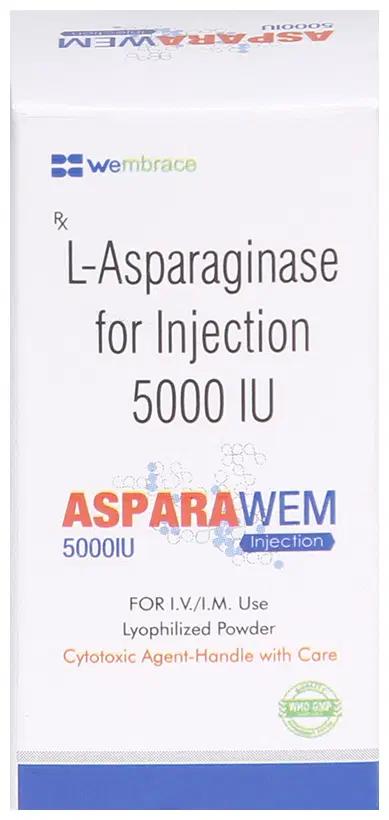Asparaginase
Asparaginase is an enzyme-based medication commonly used in the treatment of acute lymphoblastic leukemia (ALL), a type of cancer that affects the blood and bone marrow. It works by breaking down the amino acid asparagine, which is essential for the growth and survival of cancer cells. As a result, the medication deprives cancer cells of a necessary nutrient, leading to their death.
Asparaginase is typically administered through intramuscular or subcutaneous injections and is often combined with other chemotherapy drugs to improve treatment outcomes. It is mainly prescribed for children and young adults diagnosed with ALL, as it is effective in reducing the size of tumors and alleviating symptoms.
Common side effects of asparaginase treatment may include mild to severe allergic reactions, liver toxicity, and changes in blood clotting abilities. Regular monitoring of the patient’s liver function and blood cell counts is crucial during treatment. Asparaginase should not be used in patients with severe liver dysfunction or hypersensitivity to asparaginase.
It is important to consult with a healthcare professional before starting treatment with asparaginase, as the medication should be prescribed based on a patient’s individual needs, medical history, and the specific type of leukemia being treated.

Showing 13–15 of 15 results
Showing 13–15 of 15 results

